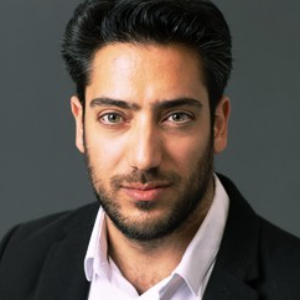Title : Macrofluidic single use bioreactors
Abstract:
One of the main challenges of cultured meat is reducing costs of production, often described as scaling. The main components of the operation are cells, media, scaffolds and bioreactors. This work presents an alternative to current stainless steel or glass bioreactors and uses plant based scaffolds that are food grade. Bioreactors must be sterile and leak-free to maintain a proper environment for cell growth. Thermoplastic films are a popular material for constructing these fluidic systems, but traditional methods of welding these film are expensive and do not allow rapid prototyping. In this study, a laser welding method was developed to join thermoplastic films in a way that prevents contamination and leaks affording effective macro-fluidics fabrication. The technique was tested using polyethylene (PET) films and a laser cutter operating with settings calibrated for the material to be welded or cut. The laser welding method was found to produce strong, leak-free seals in PET films with minimal heat-induced damage to the films. The ability to design fluidics and chambers using this method afforded to incorporate Plant based scaffolds from food grade plants (Rice). The laser welding method developed in this study provides a reliable, contamination-free method for the rapid fabrication of fluidic systems for cell cultivation. The technique is compatible with a vast range of cell types and scaffolds and has the potential to be widely adopted in tissue engineering for regenerative medicine and for food applications such as cultured meat
Audience Take Away Notes:
- Implementation in Bioreactor Design: Researchers and professionals in the field can apply the laser welding technique to enhance the construction of bioreactors, ensuring sterility and leak-free operation crucial for successful cell growth in cultured meat and tissue engineering applications
- Exploration of Sustainable Materials: Designers and researchers can explore the use of food-grade plant scaffolds, such as those derived from rice, in bioreactor construction, contributing to sustainable and eco-friendly practices in the production of cultured meat
- Streamlined Prototyping Process: The audience can use the contamination-free and rapid prototyping capabilities of the laser welding method to efficiently test and iterate different fluidic system designs for diverse cell types and scaffolds, accelerating the development process
- Interdisciplinary Applications and adoption: The technique's compatibility with various cell types and scaffolds makes it valuable for interdisciplinary research, facilitating collaboration between researchers in tissue engineering, regenerative medicine, and cultured meat production. Professionals in the industry can consider adopting this method for large-scale production, potentially reducing costs and addressing scalability challenges in cultured meat production. The technique's versatility enhances its potential for widespread adoption in various applications beyond the scope of the presented study



